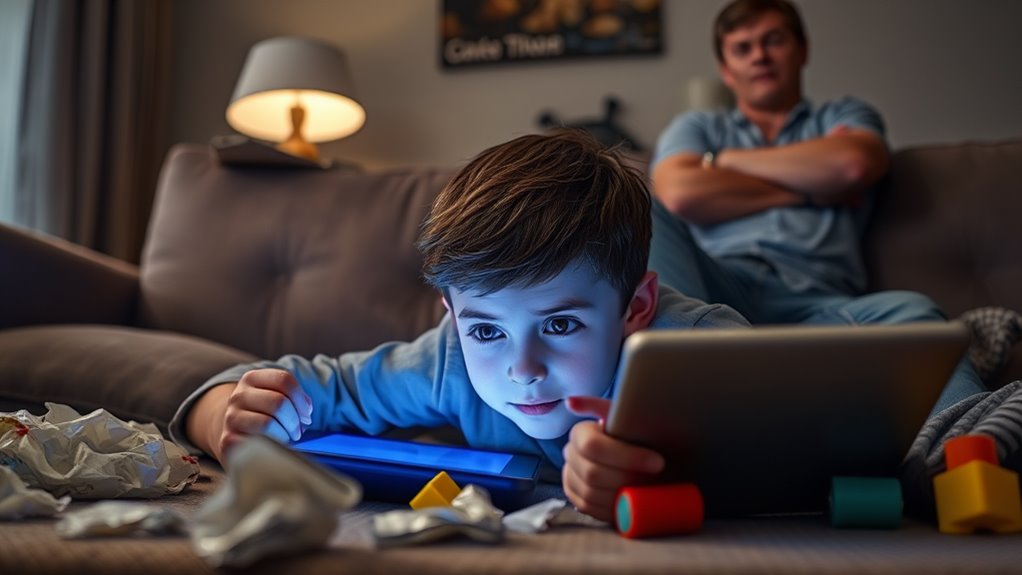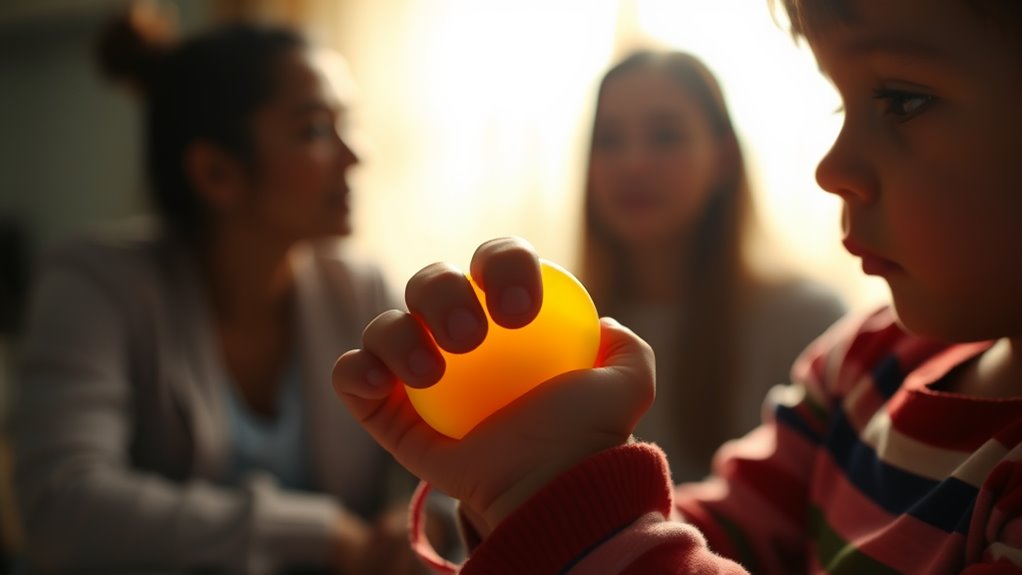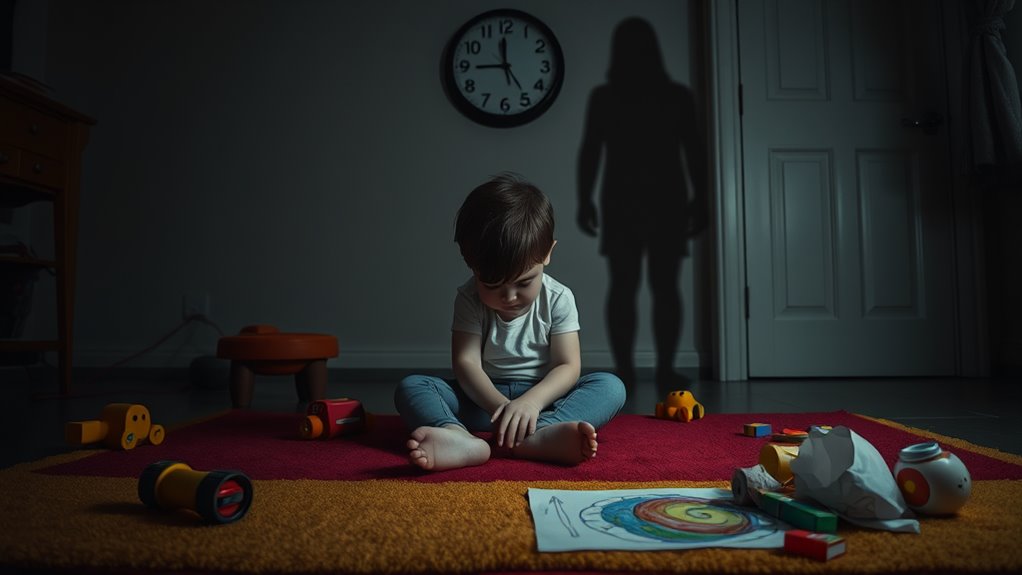Excessive screen time can turn your child's behavior into a wild roller coaster ride, affecting attention, social skills, and emotional health. When kids spend too much time online, they might struggle to concentrate on homework or other activities because their brains get used to quick screen rewards. Plus, relying on screens limits their face-to-face interactions, making social skills like eye contact fade away. You might also notice mood swings or increased irritability, especially if their sleep is disrupted by late-night scrolling. Finding a balance is key, and if you stick around, you'll uncover tips to help manage this issue!
Understanding Screen Time Trends
In today's digital age, screen time has become a staple in children's daily routines. You might notice that kids are glued to their devices more than ever—whether it's scrolling through social media, playing video games, or watching videos. It's fascinating to see how these habits have evolved.
Back in the day, kids spent more time outside, climbing trees and riding bikes, but now screens often steal the spotlight. You might wonder why this shift has happened. One reason is the sheer variety of content available at our fingertips. With just a few taps, kids can explore endless worlds and connect with friends, all from the comfort of their couch. Isn't that amazing?
But, there's a flip side to this trend. While screens can be fun and educational, they can also lead to some challenges. It's important to strike a balance between screen time and other activities, like outdoor play and reading. After all, no one wants their kid to turn into a couch potato!
Impact on Attention Span
With screens occupying so much of children's time, it's no surprise that their attention spans are being affected. You might notice that your child struggles to focus on homework, chores, or even a good book. Instead, they seem glued to their device, scrolling or tapping away. This can lead to a shorter attention span, making it harder for them to concentrate on tasks that require sustained focus.
Think about it: when kids jump from one video to another or play fast-paced games, their brains get used to quick rewards and constant stimulation. This can train their minds to expect instant gratification, which isn't always possible in the real world. So, when it comes to paying attention in class or completing a project, they might find it tough to stick with it.
You can help by setting limits on screen time and encouraging breaks. Try suggesting activities that require focus, like puzzles or board games, to boost their attention skills.
Effects on Social Skills
Social interactions are essential for children's development, yet excessive screen time can hinder their ability to engage with peers. When you spend hours glued to a screen, whether it's a tablet, phone, or video game, you might miss out on the chance to practice important social skills. You know, things like making eye contact, reading facial expressions, and having real conversations.
These skills are vital for building friendships and steering through the ups and downs of social life. If you're always chatting with characters on a screen instead of your friends at school, you might find it harder to connect with them in real life. You may feel more shy or unsure about how to start a conversation.
Plus, you could end up relying on screens for entertainment, which means you miss out on fun activities like playing sports or hanging out at the park.
Emotional Well-Being Concerns
Excessive screen time can take a toll on your emotional well-being. You mightn't realize it, but how much time you spend glued to a screen can affect your feelings. When you're constantly scrolling or gaming, you might miss out on real-life connections, and that can leave you feeling lonely or sad. It's like having a fun party in a video game but missing the actual birthday bash with friends!
You may notice that too much screen time can make you more moody or irritable. If your favorite show suddenly ends, it can feel like a mini-crisis!
Plus, the constant comparison to others on social media can make you feel less confident. It's easy to think everyone else is having a perfect life while you're just sitting there in your pajamas.
Don't forget about sleep! Staring at screens late into the night can mess with your sleep schedule, leaving you grumpy the next day.
Balancing screen time is super important for keeping your emotions in check. Remember, it's okay to take a break and enjoy the world outside your screen. Your feelings will thank you!
Strategies for Healthy Usage
Finding a balance in screen time is essential for maintaining your emotional well-being. To start, set clear limits for daily screen use. You might decide on one hour of gaming or two hours of TV. This way, you can enjoy your favorite shows or games without going overboard.
Next, encourage screen-free activities. How about family game nights, reading, or outdoor adventures? These activities help you connect with others and keep your mind sharp. You can also plan screen time together, like watching a movie as a family. It's a fun way to bond while keeping track of how much time you spend in front of screens.
Remember to take breaks! Every hour, step away for a few minutes. Stretch, grab a snack, or just breathe. This helps your brain reset and keeps you from feeling overwhelmed.
Lastly, lead by example. If you limit your screen time, your kids are more likely to follow suit. Plus, you can enjoy those screen-free moments together. So, grab a book, head outside, or play a game.
Healthy screen habits can make a big difference, and who doesn't want to have more fun?





